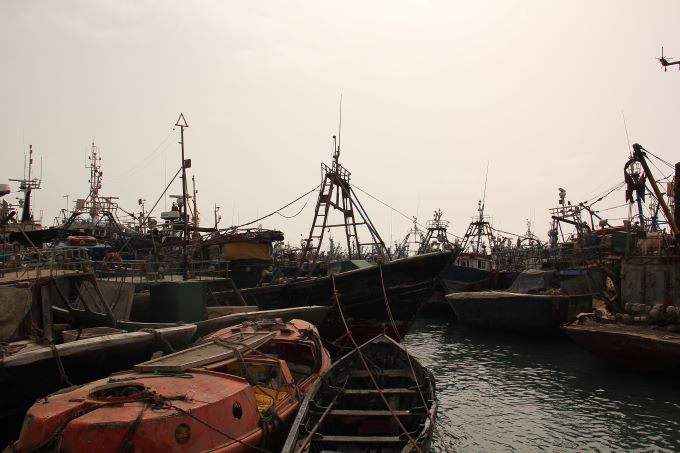A top EU legal adviser recommended yesterday that the bloc cancel a four-year-old pact with Morocco allowing European trawlers to fish in waters off the coast of the disputed Western Sahara.
The advocate general for the EU’s Court of Justice said the agreement failed to take full account of how the pact might impact the rights of the disputed territory’s inhabitants “to benefit from the natural resources” of the waters. Backing an earlier ruling by the EU’s top court, the official recommended that appeals seeking to uphold the 2019 Sustainable Fisheries Partnership Agreement with Morocco should be rejected, and called for the case to be referred back to a lower court.
This latest set of recommendations marks a setback for Morocco and the European authorities who appealed the initial ruling. The EU Court of Justice is deemed likely to take them into account with a ruling in the months ahead.
In 2021, the court ruled for the pro-independence Polisario Front contention that the agreement, which spelled out where EU vessels with Moroccan permits could fish, was in violation of the rights of people in the disputed Western Sahara. Now, Advocate General Tamara Capeta has concluded that the pact failed “to treat the territory of Western Sahara as ‘separate and distinct’ from the territory of the Kingdom of Morocco.” The EU, she said, could negotiate with Morocco in its capacity as the administrative power acting on behalf of Western Sahara’s residents providing they are treated separately.
While Morocco was not party to the case, trade associations representing the country’s farmers and fishermen backed the appeals. Government spokesperson Mustapha Baitas was at pains to point out that the recommendations are non-binding, stressing that it was up to the EU to assume “its responsibility for the preservation and protection of the partnership with Morocco in the face of provocations and political manoeuvres.”
The 2019 Morocco-EU agreement has earned Morocco an estimated 208 million euros in exchange for providing 128 fishing permits, mostly for Spanish vessels. Fishing grounds off the disputed Western Sahara’s 690-mile coastline are rich in sardines and sardinella. The country also has fishing agreements with Japan and Russia.
The court case is just one example of how the Polisario Front has pressed its sovereignty claims regarding Western Sahara by challenging Morocco’s economic and foreign policy agenda. While it welcomed the advocate general’s remarks, the Front cautioned that they amounted to recommendations only. Nonetheless, it hailed the great progress made “in this legal battle that began a decade ago”.
Although the pact in question relates specifically to fishing rights, the real core issue is about the actual territory of Western Sahara, the controversial status of which has been an ongoing issue between Morocco and the EU, which views North African governments as critical to its efforts to combat terrorism and manage migration. The EU is Morocco’s biggest trade partner and a major foreign investor. The claim to Western Sahara has been disputed by Morocco and the Algeria-backed Polisario Front since Spain withdrew from the territory in 1975. Morocco considers it to be part of its southern provinces and governs all parts except for a narrow area running close by the Algerian border.
Thursday’s recommendations come as 15 EU member states and a growing number of other countries are opting to back a Moroccan plan that, rather than offering a referendum that points the way to eventual independence, would instead offer the resource-rich territory wide-ranging autonomy.

